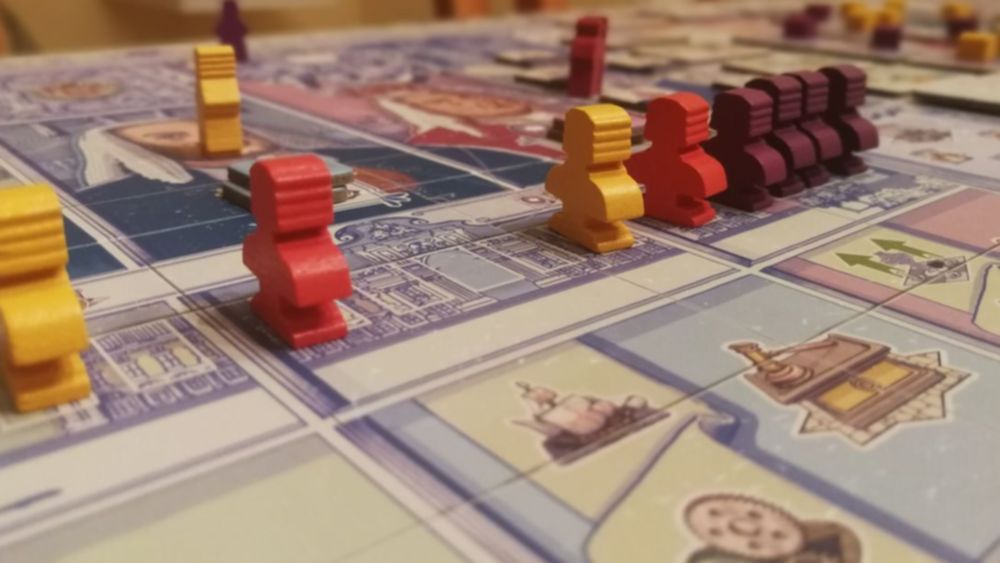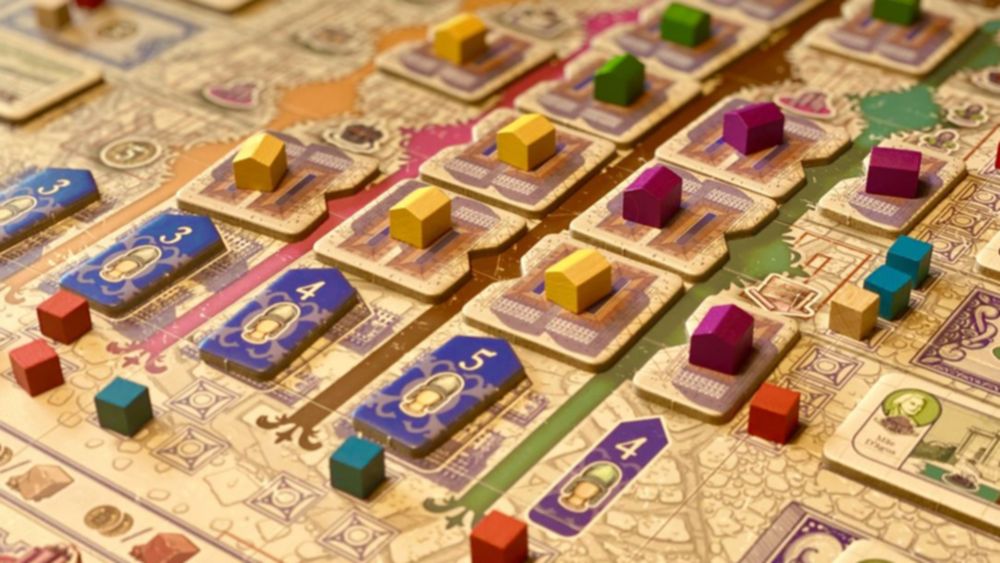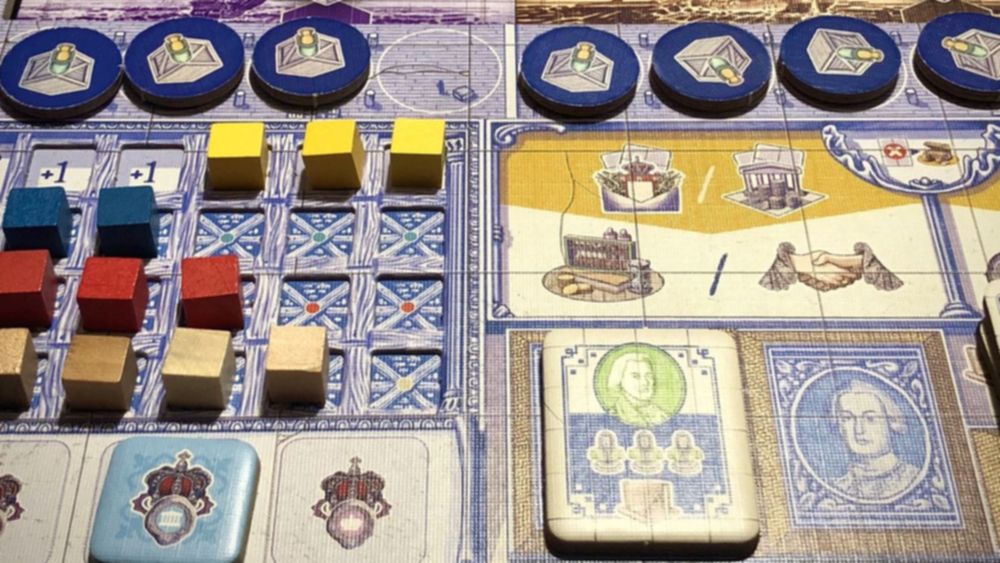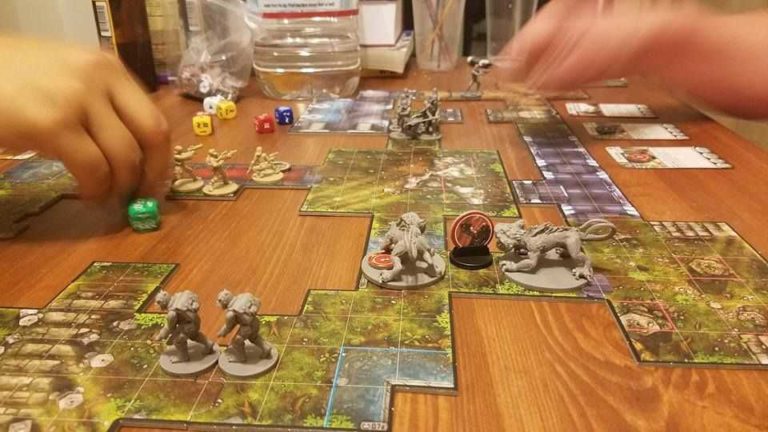In-Depth Lisboa Review: Pros, Cons and Gameplay Insights
In-Depth Lisboa Review: Pros, Cons and Gameplay Insights
Embarking on a journey through the intricate streets and vibrant history of Lisbon within the confines of your living room might seem far-fetched, but Vital Lacerda’s masterpiece, Lisboa, transforms this into reality. This Lisboa review aims to unravel the marvels and complexities of the game, providing a deep dive into its strategic depth, thematic coherence, and the immersive experience it offers. From the first time I laid my hands on the beautifully crafted components, Lisboa promised an engaging tableau of strategic decisions and historical intricacies. Every session played has only deepened my appreciation for its clever mechanics and rich narrative, which I’m thrilled to share with you.
Key Points:
- Lisboa is a board game set in the reconstruction of Lisbon after historical calamities.
- The game intricately blends strategic planning, resource management, and political maneuvering.
- Players embody influential nobles striving to rebuild the city through complex gameplay mechanics.
- Lisboa’s historical context is rooted in the 18th-century Lisbon disasters, offering a rich thematic experience.
- The game’s core mechanics involve card management, economic engine, and strategic planning.
- Lisboa’s strategic depth challenges players to balance immediate benefits with long-term goals.
- The game’s solo mode provides a challenging experience, mimicking multiplayer dynamics for solo play.
Lisboa is not merely another addition to the board game shelf; it’s a portal to the past, meticulously designed to engage and educate. As someone who has navigated through numerous board games, ranging from light party games to heavy strategy games, Lisboa holds a special place in my collection for its ambitious scope and the unique blend of history with gameplay. Let’s dive into the essence of Lisboa, dissect its gameplay, and provide insights that I hope will illuminate the profound experiences awaiting within this game’s box.
The Essence of Lisboa: A Comprehensive Overview
At its core, Lisboa is a game about the reconstruction of the Portuguese capital after a series of calamities in the 18th century. Players take on the roles of influential nobles, contributing to the city’s rebuilding efforts through a blend of strategic planning, resource management, and political maneuvering. The theme is not just a backdrop but an integral part that beautifully ties together the game’s mechanics and actions. This marriage of history and gameplay cleverly invites players into a bygone era, challenging them to navigate the socio-economic landscapes of historic Lisboa.
The Historical Context Behind the Game
Lisboa is deeply rooted in a significant period of Portuguese history. The game is set during the aftermath of three catastrophic events that hit the city in 1755: an earthquake, a tsunami, and a series of fires that devastated Lisboa. These events not only transformed the physical landscape of the city but also its social and economic structures. Players are thrust into this historic moment, tasked with rebuilding the city and restoring its former glory. The historical context behind the game is meticulously researched, adding depth and meaning to each action you take.

- Earthquake of 1755 decimating Lisboa
- Tsunami following the earthquake, causing further destruction
- Fires that spread in the aftermath, causing widespread damage
- The Marquis of Pombal’s role in the reconstruction effort
Players are immersed in the aftermath of the catastrophic earthquake, tsunami, and fires of 1755, tasked with rebuilding Lisboa and experiencing the historical significance behind the game.
Core Mechanics and Gameplay Structure
The gameplay structure of Lisboa is both complex and rewarding, featuring several interlocking systems that simulate the economic and political intricacies of rebuilding a city. Players must navigate these systems strategically to maximize their influence and contributions to the city’s reconstruction efforts. The core mechanics involve cards, resources, and player interactions that are integral to the gameplay. Each action taken is a step toward rebuilding Lisboa, whether it’s constructing new buildings, opening stores, or influencing political figures to gain advantages.
| Mechanic | Description |
|---|---|
| Card Management | Players utilize two types of cards in their hands for multiple purposes. |
| Building and Scoring | Constructing buildings and scoring them based on their location and the city‘s development. |
| Economic Engine | Managing resources and goods to fuel reconstruction efforts and influence officials. |
| Strategic Planning | Deciding the best course of action to maximize points and influence in the city. |
Delving into the Details: Gameplay and Strategy
Diving deeper into Lisboa’s gameplay, it becomes evident that understanding the nuanced mechanics and developing an effective strategy are paramount. The game offers a rich tapestry of decision-making opportunities, each turn presenting a multifaceted choice that can influence the city‘s evolution and your standing within it. Approaching Lisboa with a strategic mindset, players can uncover layers of depth and interaction that elevate the experience beyond mere reconstruction.

Mastering the Art of Reconstruction
Successfully leading the reconstruction of Lisboa requires a keen understanding of the game’s multi-faceted approach to rebuilding the city. From placing rubble to erecting majestic buildings, players must balance numerous considerations to excel. The art of reconstruction melds thematic richness with deep strategic gameplay, challenging players to plan, adapt, and outmaneuver their opponents.
- Placing rubble strategically for area development and bonus points
- Constructing buildings and stores to enhance the city‘s economy
- Engaging with nobles and officials to gain key bonuses and advantages
- Navigating the actions available to maximize the impact of each turn
Players must strategically place rubble, construct buildings, engage with nobles, and navigate available actions to successfully lead the reconstruction of Lisboa.
Strategic Depth and Decision Making
In Lisboa, the strategic depth is akin to navigating a labyrinth of royal decrees with the finesse of a seasoned diplomat. Every turn feels like a meaningful decision, not just in what you do but how you influence the evolving city landscape. For example, choosing when to rebuild the city’s iconic buildings, each decision not only progresses your own agenda but can also drastically affect your opponents’ strategies.
The game offers a multi-layered decision-making process, where players must balance immediate benefits with long-term goals. The strategic depth in Lisboa comes from several key areas:

- Navigating the Influence system, where players vie for the favor of nobles to gain various bonuses.
- Resource management is crucial, as players must adeptly manage their wares, rubble, and gold to rebuild the city.
- Card play, where the dual-use cards force players to make tough choices about whether to use them for immediate actions or save them for powerful noble effects.
- Building control and scoring, requiring foresight and planning to maximize points from horizontal and vertical city layouts.
This game brilliantly ties together these elements, demanding strategic planning and adaptability from its players.
Solo Play Versatility and Experience
The solo mode in Lisboa is a testament to the game’s thoughtful design, offering a challenging and immersive experience that rivals multiplayer gameplay. Facing off against an automated opponent, players must adapt their strategies, learning to anticipate and counteract non-player moves that mimic the competitiveness of a human opponent. The solo mode tests your ability to navigate Lisboa’s intricate systems, making it not just a solitaire variant but a valuable tool for honing your strategic skills.
The solo play highlights include:
- A dynamic AI opponent that challenges players to think critically and adapt.
- Scaling difficulty levels that provide a tailored challenge to both newcomers and veterans.
- Mechanics that mimic multiplayer interactions, ensuring the solo experience remains faithful to the game’s core dynamics.
Pros and Cons: An Objective Analysis
Lisboa is a game that blends deep strategic gameplay with a rich thematic experience, encapsulating the complexities of city rebuilding and political maneuvering. However, its intricate systems and heavy reliance on strategic planning might not be for everyone, presenting a steep learning curve for newcomers. On the flip side, for those who revel in dense, thoughtful gameplay, Lisboa offers a rewarding and immersive experience unmatched by many games in the strategy genre.

What Sets Lisboa Apart: The Advantages
Lisboa distinguishes itself with several standout features:
- Rich theme and historical accuracy that immerse players in the reconstruction of Lisbon.
- Deep strategic gameplay that rewards planning and flexibility.
- High-quality components and artwork that enhance the gaming experience.
- Variety of strategies to explore, ensuring high replayability.
- Engagement in meaningful decisions every turn, maintaining player involvement throughout the game.
These elements combine to create a board gaming experience that is both intellectually stimulating and aesthetically pleasing.

Embrace the diverse elements of Lisboa for an intellectually stimulating and aesthetically pleasing board gaming experience.
Considerations and Drawbacks
Despite its many strengths, Lisboa has aspects that might deter certain players:
- Complex rule set can be daunting for beginners, making the first few plays a hefty time investment.
- Game length might exceed the preference of players looking for quicker, more casual gaming sessions.
Understanding these potential drawbacks is essential for prospective players to gauge whether Lisboa matches their gaming preferences and style.

Comparing Lisboa to Other Strategy Board Games
When Lisboa is put side by side with other prominent strategy board games, its unique qualities start to shine even brighter. Here’s a quick comparison:
| Feature | Lisboa | Other Strategy Games |
|---|---|---|
| Theme | Deeply integrated, with mechanics that reflect the historical rebuilding of Lisbon. | Often more loosely tied to the gameplay mechanics. |
| Complexity | High, with multiple interlocking systems. | Varies, but generally lower. |
| Gameplay Length | Can extend beyond 2 hours, especially with newer players. | Typically shorter, around 1-2 hours. |
| Strategic Depth | Exceptionally high; rewards long-term planning and flexibility. | Often more focused on immediate or mid-game strategies. |
| Artwork and Components | High-quality and aesthetically pleasing, enhancing the thematic experience. | Varies widely, though many prioritize functionality over aesthetics. |
This comparison highlights Lisboa’s place in the pantheon of strategy games: a complex, beautifully designed game that offers a deep, thematic experience for those willing to navigate its intricacies.
Lisboa stands out as a high-complexity strategy game with deep thematic integration, offering a rewarding experience for players who appreciate long-term planning and flexibility.
FAQs
1. Is Lisboa suitable for beginners?
Lisboa might not be the most suitable for beginners due to its complexity and depth. The game possesses intricate systems and a multitude of choices every turn, making it challenging for those not familiar with complex board games. However, for those willing to invest the time to learn, it can be a rewarding experience.
2. How does the solo mode in Lisboa compare to multiplayer?
The solo mode in Lisboa offers a fulfilling and challenging experience, mirroring the depth and strategic decision-making of the multiplayer game. While the social interaction is lessened, the game mechanics and objectives remain consistent, providing an engaging gameplay experience for a single player.
3. Can Lisboa be considered a family game?
Considering its complexity and the level of strategic thought required, Lisboa may not fit the typical definition of a family game. It’s more suited for gamers looking for a deep and immersive experience. Families with older children who enjoy strategy games might find it rewarding, but it might not be the best choice for casual or younger players.
4. What are the key factors in winning a game of Lisboa?
In Lisboa, strategic depth, efficient use of actions, and adaptability are key factors in winning. Understanding the synergy between cards, building a coherent strategy around the city’s reconstruction, and effectively using resources are paramount. Players must balance their immediate objectives with long-term goals for success.
Conclusion
Reflecting on this Lisboa review, it’s clear that the game stands out as a monument in the world of strategy board games. With its complex but rewarding gameplay, stunning artwork, and rich historical theme, Lisboa offers a profound and intricate experience that challenges and delights. Remember, the depth of its gameplay mirrors the rebuilding of a city, demanding forethought, strategy, and a dash of creativity. Whether you’re a seasoned gamer or looking to dive deep into the realm of strategic board games, Lisboa warrants your attention. So, have you experienced the architectural brilliance of rebuilding Lisboa, or will this be your next gaming venture? Embrace the challenge, and may your city flourish. Until next time, happy gaming!
Lucas
This article uses material from BoardGameGeek and is licensed under the Creative Commons Attribution-Share Alike License.







